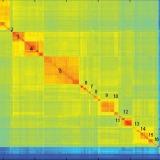 In the summer of 2008, when Wired magazine ran a cover story titled “The End of Science,” former Editor-in-Chief Chris Anderson wrote, “The new availability of huge amounts of data, along with the statistical tools to crunch these numbers, offers a whole new way of understanding the world. Correlation supersedes causation, and science can advance even without coherent models, unified theories, or really any mechanistic explanation at all. There’s no reason to cling to our old ways. It’s time to ask: What can science learn from Google?”
In the summer of 2008, when Wired magazine ran a cover story titled “The End of Science,” former Editor-in-Chief Chris Anderson wrote, “The new availability of huge amounts of data, along with the statistical tools to crunch these numbers, offers a whole new way of understanding the world. Correlation supersedes causation, and science can advance even without coherent models, unified theories, or really any mechanistic explanation at all. There’s no reason to cling to our old ways. It’s time to ask: What can science learn from Google?”
Five years later—not a lot of time, admittedly—data, computers, and statistical tools are indeed having a major impact on science. In the domain sciences—traditional fields like physics, biology, and chemistry—the old ways are holding. People still care about causation, mechanisms, and coherent theories, but in many disciplines, researchers are looking to supplement those traditional elements of science, harvesting gains from the data deluge by, in effect, learning from Google. In May, Science Careers wrote about some of these “pi-shaped” researchers, who have added computer science techniques to the techniques of their various native fields.
Read the article here. html.